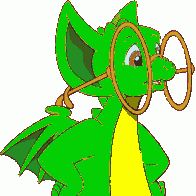The Three Essences, Ten Years Later
About ten years ago, I started this blog to share with the world an amazing discovery. I found that, suddenly, I was able to understand the paradoxes and heart of any philosophy by analyzing it triessentially.
I had been calling it "the three thing" since Spring 2001, and only when I made this blog did I start calling it Triessentialism. The name is based on the Greek concept of the quintessence: as they believed all matter was made of four elements, or essences, spirit would therefore be the mysterious fifth element, or quintessence.
As time has passed, and I have tried to explain it to people of varied backgrounds and cultures, I have come to understand each essence better. I call them The Physical, Logical, and Emotional when describing categories of things which exist.
When analyzing things for which essence contributes to which piece of any given thing, I think of them in terms of their functionality: Difference, Structure, and Sequence. This would be the best way to triessentialize pedagogy, to teach children how to think. I would be immensely happy if Sesame Street or another curriculum were to integrate it.
Difference is why many things exist, instead of one. One pen is different from another: perhaps one has blue ink and the other black. Maybe one was bought from a stationary store and the other was given away as an ad for a prescription medicine. It's possible they're two pens in a pack of twelve, and the only differences between them are location and being made of different atoms.
The Structure of a ballpoint pen differentiates it from a pile of metal, plastic, and inky ooze. Even if the parts were flawless, unless assembled in a structure, they are not a pen.
Sequence: someone wants to write, so they buy paper and a pen or pencil. Someone wants to make money, they might make it by working at a stationary store, a pen factory, or a shipping company that moves pens from factories to stores, among other products.
People do things because of wants and needs. This is the simplest form of psychology, and it gets easier from here if looked at triessentially. Each emotion is born from a sequence. Whether toward something good or away from something bad, each emotion has a picture of its fulfillment.
With every passing month, I see more applications and find myself thinking more erudite and complex thoughts, simply because I can break things down. I see myself becoming more socially able, more philosophical, and I rejoice that I was given this wonderful glimpse behind the scenes of reality itself.
I had been calling it "the three thing" since Spring 2001, and only when I made this blog did I start calling it Triessentialism. The name is based on the Greek concept of the quintessence: as they believed all matter was made of four elements, or essences, spirit would therefore be the mysterious fifth element, or quintessence.
As time has passed, and I have tried to explain it to people of varied backgrounds and cultures, I have come to understand each essence better. I call them The Physical, Logical, and Emotional when describing categories of things which exist.
When analyzing things for which essence contributes to which piece of any given thing, I think of them in terms of their functionality: Difference, Structure, and Sequence. This would be the best way to triessentialize pedagogy, to teach children how to think. I would be immensely happy if Sesame Street or another curriculum were to integrate it.
Difference is why many things exist, instead of one. One pen is different from another: perhaps one has blue ink and the other black. Maybe one was bought from a stationary store and the other was given away as an ad for a prescription medicine. It's possible they're two pens in a pack of twelve, and the only differences between them are location and being made of different atoms.
The Structure of a ballpoint pen differentiates it from a pile of metal, plastic, and inky ooze. Even if the parts were flawless, unless assembled in a structure, they are not a pen.
Sequence: someone wants to write, so they buy paper and a pen or pencil. Someone wants to make money, they might make it by working at a stationary store, a pen factory, or a shipping company that moves pens from factories to stores, among other products.
People do things because of wants and needs. This is the simplest form of psychology, and it gets easier from here if looked at triessentially. Each emotion is born from a sequence. Whether toward something good or away from something bad, each emotion has a picture of its fulfillment.
With every passing month, I see more applications and find myself thinking more erudite and complex thoughts, simply because I can break things down. I see myself becoming more socially able, more philosophical, and I rejoice that I was given this wonderful glimpse behind the scenes of reality itself.

